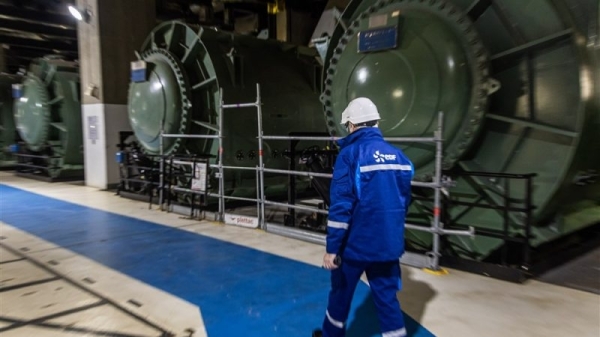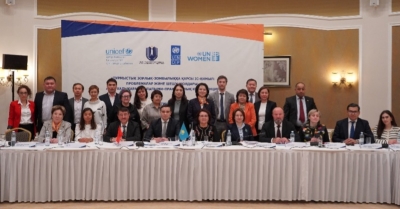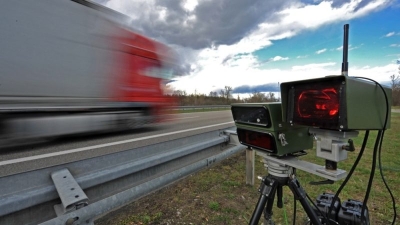French parliament report slams ‘harmful’ EU energy policies

The EU electricity market has damaged France’s energy system, according to the conclusions of a special enquiry committee set up by the French parliament.
After a record 150 hours of hearings, lawmakers presented a 376-page report on “the reasons for the loss of sovereignty and energy independence of France” which identifies the mistakes and lessons to be learned from the past 30 years with a view to the future.
“We must no longer accept a European framework that runs counter to France’s vital interests,” said the committee’s rapporteur Antoine Armand, of Emmanuel Macron’s centrist Renaissance political party.
There is an “urgent need to reform the entire European energy policy framework”, the report said.
In France, nuclear energy provides more than 60% of electricity demand at a relatively low cost. The chief provider is EDF, a public firm obliged to provide some electricity to its competitors in regard to EU competition rules.
Paying a heavy price
The special enquiry committee traced France’s ‘loss of sovereignty’ back to the early days of Europe’s energy liberalisation policy, which was developed at the end of the 1990s.
The EU’s energy policy was developed around three objectives: supply security, environmental protection and competition.
Yet, the EU did not “always ensure that these three objectives were compatible”, the report said.
Ultimately, the way the policy was conducted at the EU level has harmed France’s energy system, according to Armand, who says this period “will remain irrevocably as the years of a European construction that was harmful to the French energy model”.
Need for reform
According to the report, the war in Ukraine has highlighted the flaws in the system built around a single electricity market that does not reflect the costs of producing electricity and does not ensure a decarbonised security of supply.
The electricity market, therefore, needs to be reformed “within a year and in depth”, Armand argued.
Steps towards reform are already being taken: on 14 March, the European Commission published its proposal to reform the EU electricity market.
“The pressure is going in the right direction […] but the devil is in the detail. So we need to go further,” said Armand, who proposed to decouple gas and electricity prices.

France welcomes inclusion of nuclear in EU power market reform
France has welcomed the European Commission’s proposal to overhaul the EU’s electricity market which was unveiled on Tuesday (14 March), as it offers France the chance to develop and refurbish its nuclear fleet.
Considering country specifics
France’s objective with the EU power market reform is clear, Armand argues: to enable national energy mixes that are already decarbonised to “prosper”.
To have positive, long-lasting effects, the EU’s electricity market reform must properly consider France’s specific demands which consist of a “near self-sufficiency in electricity […] via nuclear and hydroelectricity”, the report adds.
Indeed, EU member states are free to choose their own energy mix under the EU “technological neutrality” principle and Article 194 of the EU treaty, which stipulates that EU decisions on energy policy “shall not affect a Member State’s right to determine […] its choice between different energy sources” provided that common European goals are met.
In the report’s authors’ view, hydroelectric concessions should therefore be kept in the hands of public authorities, and the advantages of nuclear power recognised.
France’s nuclear push
The report also welcomes the French government’s efforts over the past months to ensure nuclear is fully taken into account in the European Green Deal.
“It has been a long time since we dared to say things so clearly,” Armand told EURACTIV France a few days before the report was presented.
According to him, the “nuclear alliance” promoted by France and a dozen member states should grow in size.
At the same time, Armand is calling for the strengthening of “industrial, technical and scientific cooperation […] in the spirit of the Euratom Treaty”.
The Euratom Treaty, signed in 1957, aims to promote research and secure the utilisation of nuclear power in Europe. However, the report notes that the treaty’s objectives, while still valid, “do not match the scale of the European project or the urgency of decarbonisation”.

Eleven EU countries launch alliance for nuclear power in Europe
Signatories committed on Tuesday (28 February) to “cooperate more closely” across the entire nuclear supply chain, and promote “common industrial projects” in new generation capacity as well as new technologies like small reactors.
Lack of awareness
According to Raphaël Schellenberger, chairman of the committee conducting the investigation, there is a general “lack of awareness in Europe of the need to take account of electricity production resources”.
The EU must, therefore, “take an interest in the coordination of means of production and not only in interconnections”, even if they are essential to the energy sovereignty of member states, Schellenberger noted.
The EU’s 430 electric interconnections, which enable the sharing of electricity all over the EU, helped prevent a Europe-wide blackout in 2006, while also helping mitigate the strain on the French nuclear fleet last year.
Interconnections “remain the most efficient contribution to security of supply and the integration of the intermittency of renewables”, the Director General of the National Agency for Radioactive Waste Management, Pierre-Marie Abadie, who appeared before the committee of enquiry, added.
EU re-industrialisation is also essential to ensure “our energy system is not dictated to us by external actors”, Schellenberger said at the start of the press conference.
For this, the report stresses the need to revive the renewable and nuclear sectors in Europe, but also the mining sector, which is what the EU proposal for a Critical Raw Materials Act (CRMA), presented on 16 March, seeks to address.
The parliamentary report is thus also part of a “rather unprecedented momentum in the history of the EU,” as the bloc reassesses both its energy and industrial strategy, Armand told EURACTIV.
Even though the criticism may be difficult to understand in Brussels, “it is healthy that we have a debate on this subject in France”, Armand added.
Because “when we try to sweep the dust under the carpet”, we “clearly see that what feeds anti-European sentiment”, he added.

France to push for ‘very ambitious’ EU raw materials diplomacy
France has a “very strong” interest” in “metal diplomacy” and will push for a very ambitious EU Raw Materials Act at a meeting next week that will see foreign ambassadors and industrialists discuss the EU’s and France’s strategy on the matter.



